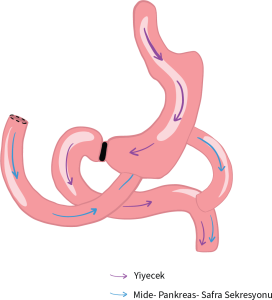What is Revision Bariatric Surgery?
 Revision bariatric surgery refers to surgical interventions performed when the desired results are not achieved after the initial obesity surgery. These conditions include:
Revision bariatric surgery refers to surgical interventions performed when the desired results are not achieved after the initial obesity surgery. These conditions include:
- Inadequate weight loss
- Re-gaining weight
- Technical issues (e.g., leaks, bleeding, expansion of the stomach pouch)
- Symptoms such as reflux
Approximately 15% of patients who undergo obesity surgery worldwide require revision surgery after a certain period of time.
When is Revision Surgery Considered?
The decision for revision surgery is typically made in the following situations:
- Re-gaining weight 1-2 years after the initial surgery
- Failure to achieve sufficient weight loss initially
- Identification of a technical or anatomical problem
- Lack of significant improvement in co-existing diseases (e.g., type 2 diabetes, hypertension)
Before deciding on revision surgery, the patient’s eating habits, psychological state, and how they have managed the post-surgery process should be thoroughly evaluated.
What Are the Types of Revision Bariatric Surgery?
The appropriate revision surgery is determined based on the patient’s previous surgery type, stomach and bowel anatomy, and metabolic condition. The most commonly performed revision methods include:
After Sleeve Gastrectomy:
- Re-sleeve gastrectomy
- Gastric Bypass
- Duodenal Switch
After Gastric Bypass:
- Reducing the stomach pouch size
- Placing a band on the stomach pouch
- Conversion to Distal Gastric Bypass or Duodenal Switch
The suitable revision method is different for each patient. Therefore, a personalized surgical plan should be made.
What Are the Risks of Revision Surgery?
Revision surgeries are more technically demanding and riskier than the initial obesity surgery. The most common complications include:
- Bleeding
- Organ injury
- Staple line leaks
- Infection
- Need to switch to open surgery
- Extended hospital stay
Due to these risks, revision surgeries should be performed by experienced bariatric surgeons at centers with advanced facilities.
How is Weight Loss After Revision Surgery?
Weight loss after revision surgery is usually slower compared to the initial surgery. However, the success rate depends on factors such as the surgical method chosen and the patient’s:
- Adherence to nutritional guidelines
- Psychological support
- Participation in follow-up protocols
Multidisciplinary support (nutrition, psychological support, functional medicine support) is crucial for achieving weight loss goals.
Revision Surgery is Not a Second Chance, But a New Beginning
Revision surgery can lead to successful results with the correct patient selection and professional team support. If you have regained weight after your initial surgery or did not benefit sufficiently, a detailed evaluation can help create a personalized roadmap for you.










